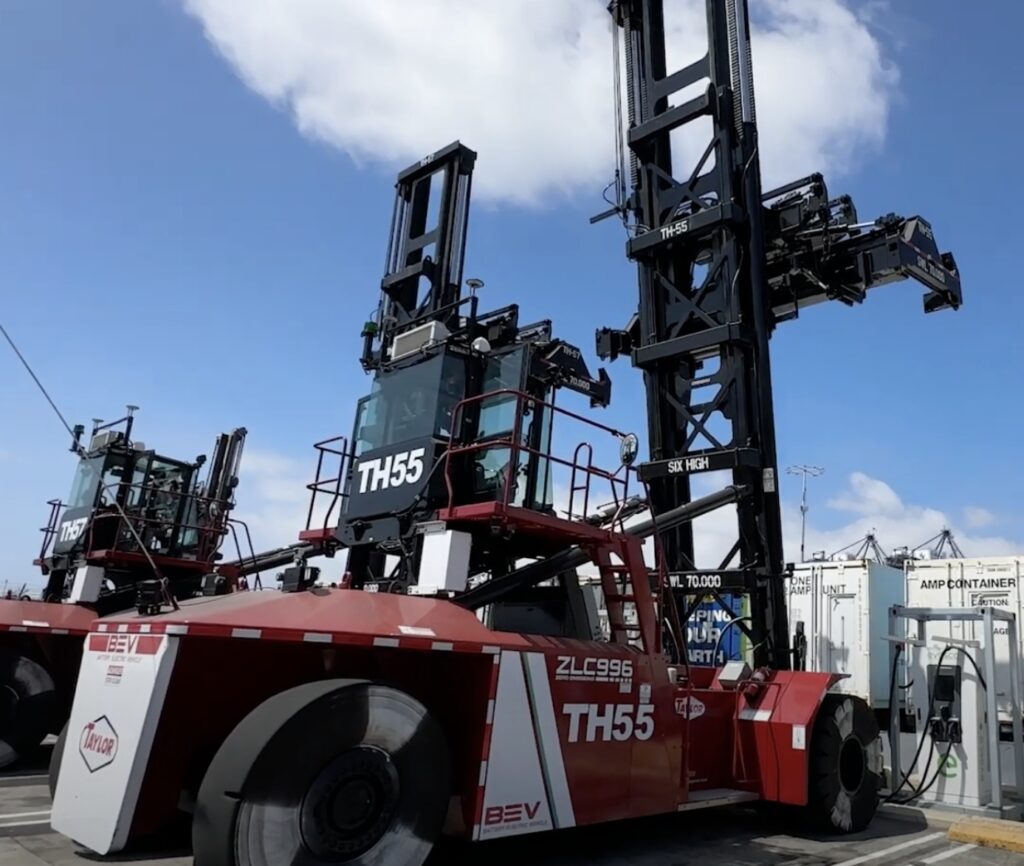No Port ISR
The Port Indirect Source Rule (ISR) introduced by the South Coast Air Quality Management District will severely affect California’s port operations, surrounding communities, and the entire supply chain.
What is the Port ISR?
The SCAQMD staff has outlined initial plans for a proposed rule known as the Port ISR. This rule would hold the San Pedro Bay Ports (Los Angeles and Long Beach) accountable for air emissions from sources beyond their control, penalizing ports and marine terminal operators who are already making significant efforts to reduce emissions. If implemented, the rule would impose unrealistic and rigid emissions and cargo limits, severely impacting jobs, Southern California’s economy, and the global supply chain. Even more concerning, capping cargo would lead to increased greenhouse gas emissions as jobs and shipments are redirected to less environmentally friendly ports.
noportisr.com pmsaship.com
The SCAQMD Port ISR will disrupt the delivery of imported goods, cause delays similar to the pandemic-era congestion, eliminate jobs, and hinder the export of California goods and agricultural products.
SCAQMD’s Port ISR is unnecessary, expensive, and detrimental to port workers. California ports are the cleanest in North America and are already pursuing the nation’s most ambitious emissions reduction goals.
The Risks
Economic decline for Southern California.
California’s jobs and economic growth rely on a fully operational supply chain. The Port of Long Beach contributes $11.9 billion annually in federal, state, and local taxes, while the Port of Los Angeles estimates that 1 in 9 jobs in Southern California and three million jobs nationwide are tied to its operations.
Force the ports to turn away cargo.
If the SCAQMD imposes unrealistic hard caps and restrictions on port operations, it will disrupt the entire supply chain, causing delays, supply interruptions, congestion, inflation, and shortages. Manufacturers will struggle to obtain components, distribution centers will face delays in receiving goods, and rail cars will be underutilized. This ripple effect will lead to product shortages and empty shelves in stores and supermarkets.
Create goods shortages and drive up prices, further fueling inflation
Unrealistic hard caps and restrictions on port operations by the SCAQMD would disrupt the entire supply chain, leading to delays, supply disruptions, congestion, inflation, and shortages. Manufacturers would face setbacks in receiving components, distribution centers would struggle to stock consumer goods, and rail cars would be left partially loaded. These disruptions would ultimately result in product shortages and empty shelves in stores and supermarkets.
Hurt California’s exports and farmers.
California’s agricultural industry depends on the Ports of Los Angeles and Long Beach to export perishable goods to customers worldwide. Imposing hard caps on emissions and cargo under the ISR regulation would directly hinder farmers’ ability to deliver these perishable products to international markets.
Harm both ports’ successful zero-emission efforts and limiting investment in green technology and equipment.
California’s agricultural industry is deeply reliant on the Ports of Los Angeles and Long Beach to export perishable goods to global customers. By enforcing hard caps on emissions and cargo, the ISR regulation will directly restrict farmers’ ability to deliver their perishable products to international markets.
Increase greenhouse gas emissions by diverting cargo.
By imposing hard caps and penalties leading to cargo limits, the ISR regulation will shift discretionary cargo to East and Gulf Coast ports, along with supply chain jobs. As ocean-going vessels reroute away from Southern California, resulting in longer transit times and reduced system efficiency, this will ultimately increase supply chain GHG emissions by an average of 19%. For further details, see the latest study on the rise in GHG emissions when cargo is diverted from the most efficient gateways on the US West Coast [here].
Join the Effort!
110+ businesses, labor groups, and nonprofits are saying NO to the Port ISR.
noportisr.com